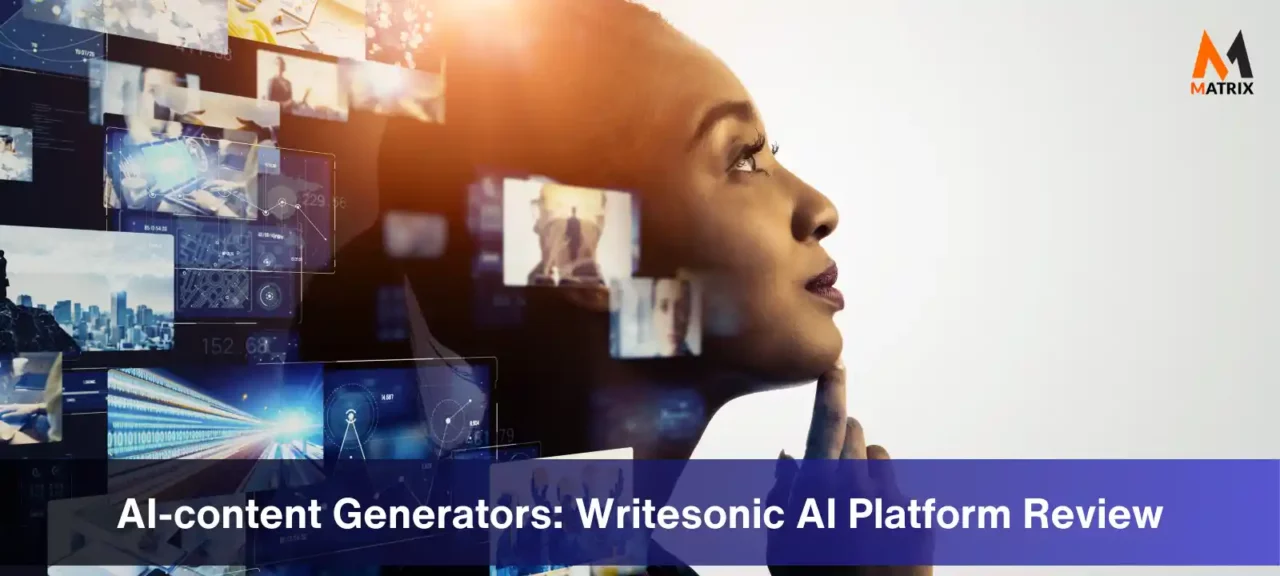AI in Corporate Governance: Don’t Be Too Late
Learn about AI in Corporate Governance before It’s Too Late
Artificial intelligence (AI) is a branch of computer science that creates intelligent agent systems that can reason, learn, and act autonomously. AI research has successfully developed effective techniques for solving various problems, from game playing to medical diagnosis.
There are many approaches to AI, but they all share the goal of creating systems that can perform tasks that normally require human intelligence. Some of the most common AI techniques include:
- Machine learning: This technique allows systems to learn from data without being explicitly programmed.
- Natural language processing: This technique allows systems to understand and process human language.
- Computer vision: This technique allows systems to see and understand the world.
AI is rapidly growing, and new techniques are constantly being developed. As AI continues to evolve, it will impact our lives profoundly. AI has the potential to automate many tasks that humans currently do, and it could also be used to develop new technologies that improve our quality of life. What is an AI Content Assessment?
Here are some examples of how AI is being used today:
- Self-driving cars: AI is being used to develop self-driving cars that can navigate roads and avoid obstacles without human input.
- Medical diagnosis: AI is used to develop systems that can diagnose diseases more accurately than human doctors.
- Fraud detection: AI detects fraudulent activity, such as credit card fraud and identity theft.
- Customer service: AI provides customer service more efficiently and personally.
These are just a few examples of how AI is used today. As AI continues to evolve, it will likely have an even greater impact on our lives.
The Role of AI in Corporate Governance

AI Corporate Governance is essential for any successful business in today’s digital age. As a CEO in this highly competitive landscape, you can’t afford to overlook the potential of Artificial Intelligence (AI) and its impact on your organization’s overall success and strategies.
With powerful capabilities ranging from automating manual processes to improving decision-making capabilities and forecasting risk more accurately, utilizing a corporate governance approach has become critical for large companies worldwide.
This blog post will provide detailed information regarding setting up an effective AI governance program to ensure your organization remains at the cutting edge of innovation in this rapidly evolving landscape!
AI Corporate Governance for the CEO
As a CEO, it is essential to know how technology changes your business’s operations. Artificial Intelligence (AI) is becoming increasingly prevalent in today’s corporate landscape, and understanding its potential for influencing corporate governance processes should no longer be overlooked.
AI can provide incredible opportunities to reduce costs or generate new revenue streams, but organizations need proper implementation and guidance to avoid costly missteps and damaging brand value. That’s why AI Corporate Policy needs to get on your agenda now!
With an experienced guide by your side, investing in sound best practices will ensure that you have the tools you need to maximize returns from every aspect of developing and utilizing advanced technologies like artificial intelligence.
By leveraging these predictive insights as part of intelligent decision-making processes across the entire organization – including strategy development – long-term operational success following clear ethical guidelines can result for both management and shareholders. So, let’s look at what steps can be taken to ensure effective AI Corporate Policy!
I. Introduction Corporate Governance and the Use of AI
Corporate governance and artificial intelligence (AI) have become increasingly important in today’s business world.
Corporate governance refers to the framework of rules, systems, and processes that companies use to ensure accountability, fairness, and transparency in their operations.
Meanwhile, AI is revolutionizing how businesses make decisions, analyze data, and interact with customers. However, with these advancements comes the need for effective oversight and regulation of AI’s use in corporate governance.
Companies must identify potential ethical issues and risks associated with AI and establish comprehensive plans to manage them. By leveraging AI responsibly and ethically, companies can strengthen their corporate governance practices, improve performance, and enhance their reputation among stakeholders.
A. Definition of Artificial Intelligence (AI)

Artificial Intelligence, or AI, is an exciting and rapidly evolving field of technology that involves creating intelligent machines that can learn, reason, and respond like humans.
Simply put, it is the development of computer systems that can perform tasks that typically require human intelligence, such as speech recognition, decision-making, and language translation.
With AI, machines can automate routine tasks, adapt to new situations, and solve complex problems. AI systems are becoming increasingly sophisticated, driving significant advancements in various industries, from finance and healthcare to transportation and manufacturing.
As AI-powered technology continues to evolve, the possibilities for how it can improve our lives are endless. AI Product Management: Why Software Product Managers Need to Understand AI and Machine Learning
B. Overview of Corporate Governance
Corporate governance is vital to the success of any organization. It refers to policies, procedures, and regulations governing how a company is managed and controlled.
Effective corporate governance ensures that a company operates with integrity, maintains accountability, and promotes transparency. It also helps protect stakeholders’ interests, including shareholders, employees, customers, and the wider community.
Companies must prioritize corporate governance in today’s competitive business landscape to gain an advantage and build trust with their stakeholders.
A robust corporate governance framework enhances a company’s reputation and fosters a culture of ethical behavior and long-term value creation.
C. Importance of AI in Corporate Governance
Corporate governance has always been challenging, focusing on balancing the interests of various stakeholders. Enter artificial intelligence (AI), a game-changing technology transforming businesses’ operations.
AI is used to improve decision-making, mitigate risk, and streamline operations, all while enhancing transparency and accountability.
By integrating AI into their governance structures, companies can identify patterns, predict outcomes, and make data-driven decisions that benefit their stakeholders and the overall health of their businesses.
As AI evolves, its importance in corporate governance will only increase, providing companies with a powerful tool to drive growth and success.
Intelligent AI Agentic Systems
The Next Frontier of Generative AI: Agentic Systems
These systems function as autonomous digital colleagues, able to plan, reason, and execute complex tasks with minimal human intervention. Their capabilities allow them to transform from helpful assistants into proactive decision-makers and core contributors in business environments.

II. Role of AI in Corporate Governance
Artificial Intelligence (AI) has rapidly improved in recent years, making it an essential tool for corporations.
One area in which AI technology has significantly impacted is corporate governance. With its advanced capabilities, AI can analyze vast amounts of data and provide insights to make informed decisions.
This has transformed how companies approach governance by enabling them to address potential compliance issues proactively.
Additionally, AI-driven governance tools can help organizations optimize operations, reduce costs, and improve overall productivity. This technology has become increasingly crucial in the corporate world, and companies that embrace it stand to benefit significantly.
By leveraging AI in governance, companies are better equipped to navigate the complex regulatory landscape and ensure that they remain competitive and efficient.
A. Explanation of how AI can aid in decision-making
Artificial intelligence, or AI, has the potential to revolutionize the way we make decisions. By utilizing advanced algorithms and machine learning, AI can effectively analyze complex data sets and provide insights that would be impossible for humans to calculate independently.
From predicting market trends to identifying potential risks, AI-powered decision-making tools can provide valuable information to help individuals and organizations make more informed choices.
Ultimately, using AI can result in more accurate, efficient, and effective decision-making, which could lead to significant improvements in a wide range of industries. As AI evolves and improves, its impact on decision-making will become even more profound.
B. Improving efficiency and productivity in corporate governance processes
In today’s fast-paced world, corporations must keep up with their competitors by being more efficient and productive than ever.
That’s where improving efficiency and productivity in corporate governance processes comes in. By streamlining workflows, eliminating unnecessary steps, and using cutting-edge technology, corporations can greatly reduce the time and resources expended in these processes.
This, in turn, frees up more resources for other critical tasks and helps corporations stay ahead of the game. Ultimately, the benefits of improving efficiency and productivity in corporate governance processes extend far beyond the corporation itself, positively impacting shareholders, employees, and the wider community.
C. Enhancing risk management and compliance
Risk management and compliance are more important than ever in today’s fast-paced business world. Companies must proactively avoid potential risks and fully comply with all legal and regulatory requirements.
By enhancing their risk management and compliance strategies, businesses can mitigate the likelihood of costly legal actions and improve their overall operational efficiency. With advanced technology and innovative approaches, businesses can go beyond simple risk assessments and integrate proactive monitoring of all potential risks into their daily operations.
Effective risk management and compliance ensure the protection of the business and the safety and trust of its customers and stakeholders.
D. AI in the Boardroom: the next realm of corporate Governance
As we advance technologically, the Board’s Responsibility for Artificial Intelligence Oversight is becoming an increasingly important topic.
Boards must clearly understand how to oversee the implementation and use of AI within their organization. With the potential for biased algorithms and unintended consequences, boards must ensure the technology is used ethically and effectively.
Additionally, boards must ensure that the AI implemented aligns with the organization’s goals and values. They must adapt to the changing technological landscape and take responsibility for AI oversight to ensure the best outcomes for their organization and its stakeholders.
E. CEO’s Responsibility for Artificial Intelligence Oversight
As technology advances at an unprecedented rate, artificial intelligence (AI) is becoming an increasingly vital aspect of many businesses.
The AI market is estimated to be worth over $120 billion by 2025. However, with this rapid growth comes an important responsibility that must be addressed. As the company’s figurehead, the CEO must take an active role in overseeing the organization’s development, implementation, and regulation of AI.
This includes ensuring that the technology is used ethically and responsibly and that potential risks and consequences are thoroughly evaluated.
CEOs can help ensure that their company is on the cutting edge of technology while maintaining a strong ethical standard by taking an active role in AI oversight.
F. CMOs Responsibility for Artificial Intelligence Oversight
Artificial intelligence is the buzzword in the tech industry today.
With its advancements and applications, it has become imperative for companies to implement AI in their processes. However, it is equally important to have someone oversee its usage and take responsibility for any consequences.
That’s where the Chief Marketing Officer (CMO) comes into the picture. CMOs understand the company’s business objectives and have a deep knowledge of customers and the market. Their role in overseeing the AI implementation can lead to better decision-making.
A CMO can ensure that AI use aligns with the company’s values while staying relevant to customers’ needs. This is a challenging responsibility, but it can give companies a competitive edge in creating a sustainable business model. How to Use AI Digital Marketing to Transform Your Marketing Results
III. Applications of AI in Corporate Governance

Artificial intelligence (AI) has become an increasingly important tool for companies in recent years, with applications ranging from marketing to human resources. However, in corporate governance, AI’s potential becomes truly transformative.
One example is using AI-powered predictive analytics tools to identify and mitigate compliance risks before they become serious. Another application uses natural language processing (NLP) to analyze unstructured data, such as employee emails, to identify patterns that may indicate potential legal or ethical violations. AI governance in the financial industry is important.
By leveraging AI’s capabilities to automate and streamline governance processes, companies can increase efficiency, reduce risk, and make better decisions. As we continue to develop these tools, we can see AI play an increasingly important role in shaping the future of corporate governance.
A. AI in decision-making and strategic planning
Artificial intelligence (AI) has become increasingly important in business decision-making and strategic planning. By leveraging the power of machine learning and data analytics, AI can analyze vast amounts of information and offer previously impossible insights for humans to gather alone. This technology helps businesses optimize their operations, better understand their customers, and gain a competitive edge in the market.
AI’s ability to make data-driven decisions has revolutionized how businesses operate and opened doors to new possibilities that were once unimaginable.
As technology advances, AI’s role in strategic planning and decision-making will undoubtedly become even more crucial, shaping the future of business.
1. Real-time data analysis
is changing the way we interpret information. With the ability to analyze data as it’s generated, decision-making processes are becoming more informed and efficient.
Whether monitoring traffic in a city or analyzing consumer behavior, real-time data analysis allows for quick adjustments and rapid response times.
In the past, analyzing data would take weeks, if not months, but with technological advancements and data science, this process can now happen within seconds. Real-time data analysis is the future and is becoming increasingly necessary as we navigate the complexities of our world.
2. Predictive modeling
Predictive modeling uses data analysis and statistics to predict future events or behaviors. It involves taking a data set and using various algorithms and models to identify patterns and make predictions based on that data.
In today’s world, where data is king, predictive modeling is becoming an increasingly important tool in various industries, including finance, healthcare, and marketing.
Using predictive models, companies can make smarter decisions, anticipate customer behavior, and optimize business operations. While not a crystal ball, predictive modeling can help businesses gain a competitive advantage by predicting future trends and making data-driven decisions.
B. AI in corporate communication
Integrating Artificial Intelligence (AI) in corporate communication rapidly transforms how businesses interact with clients and employees.
With AI-powered chatbots and virtual assistants, companies can provide immediate assistance 24/7 without human intervention.
This is a game-changer for industries that receive a high volume of inquiries, such as healthcare and finance.
Additionally, AI technology can help companies analyze data to predict communication patterns and identify areas for improvement. With the continued advancement of AI, it is clear that the future of corporate communication will be more efficient, personalized, and effective than ever before.
1. Automating communication processes
Communication is a fundamental aspect of our daily lives. With the numerous communication channels available, handling everything manually can be overwhelming. This is where automation of communication processes comes in handy.
Through automation, you can streamline your communication processes and significantly reduce the workload. Automated communication processes are designed to be efficient, effective, and personalized. Imagine sending your clients customized emails, text messages, or social media posts without manually doing it yourself.
Automation lets you focus on other important aspects of your business or personal life while maintaining effective communication with your audience.
2. Sentiment analysis for stakeholder feedback
As companies strive for continued success, it is important to consider their stakeholders’ feedback. One useful tool for analyzing this feedback is sentiment analysis, which uses natural language processing to determine the overall sentiment behind a message.
By applying sentiment analysis to stakeholder feedback, companies can gain valuable insights into how their stakeholders truly feel about their product or service.
With this information, they can subsequently make course corrections and assess how well their efforts are received. Sentiment analysis is becoming an increasingly beneficial tool for companies to make data-backed decisions, cater to their stakeholders’ needs, and foster a stronger relationship with their audience.

C. AI in Risk Management
As businesses strive to keep up with the constantly evolving technological landscape, artificial intelligence has emerged as a powerful tool for risk management.
By utilizing AI algorithms, businesses can more effectively identify, assess, and mitigate risks across various industries, from finance to healthcare to manufacturing. AI-powered risk management systems can analyze vast amounts of data in a fraction of the time it would take humans, allowing for more informed decision-making and faster responses to potential threats. With the ability to recognize patterns, forecast trends, and detect anomalies, AI provides a cutting-edge solution for businesses looking to minimize risks and maximize opportunities.
As the technology behind AI continues to advance, we can only expect to see even greater benefits in risk management.
1. Fraud detection
Fraud detection is a crucial aspect of any business operation. It involves identifying and preventing fraudulent activities in financial transactions such as credit card purchases or insurance claims. With the rise of digital technologies and online purchasing, fraudsters can exploit system vulnerabilities to carry out their misdeeds.
As such, businesses must invest in robust fraud detection mechanisms that can identify suspicious activities in real-time and prevent them before they cause damage. Fraud detection protects businesses from financial losses and safeguards the interests of customers who may fall victim to fraudsters.
Hence, it’s essential to stay ahead of the game and keep fraudsters at bay by being vigilant and proactive in detecting and preventing their activities.
2. Predictive risk modeling
Predictive risk modeling transforms risk assessment by analyzing vast amounts of data. This powerful technique helps to identify contributing factors, enabling accurate prediction of future outcomes. With its ability to analyze subtle nuances and reveal patterns invisible to the naked eye, we can manage risks better than ever.
This technology can transform various industries, from healthcare to finance, by enabling better risk management and informed decision-making.
With predictive risk modeling, we can understand risks better and plan for them, ultimately leading to more efficient and successful outcomes. As this technology continues to evolve, we can expect it to significantly impact how we approach risk assessment in the future.
D. AI in Compliance

The world is rapidly evolving, and the need for regulation and compliance grows too. With the introduction of artificial intelligence (AI), compliance can now be automated.
AI has revolutionized how businesses deal with compliance by analyzing vast amounts of data in seconds, making it more effective at identifying potential risks. By constantly monitoring complex business processes, AI can detect any anomalies in regulatory compliance.
This technology provides accurate results, reducing the possibility of human error while ensuring better adherence to regulations. Embracing AI in compliance can help businesses eliminate the costs of manual data analysis, thus saving time, money, and energy for other critical aspects of business operations.
1. Automated regulatory compliance
Automated regulatory compliance has become increasingly important in today’s business landscape. With the constantly evolving regulatory environment, companies must comply with their industry’s many laws and regulations.
Automation has made this process much more efficient and reliable, allowing companies to automate many of the compliance tasks that were previously done manually. This saves time, reduces costs, and helps companies avoid potential penalties and reputational damage.
By partnering with the right technology and service providers, businesses can achieve more accurate and timely compliance reporting, freeing up resources to focus on other important initiatives. Ultimately, automated regulatory compliance is critical for any business looking to stay ahead of the curve in a competitive landscape.
2. Real-time monitoring and reporting
Real-time monitoring and reporting are the backbone of today’s businesses. With the technological advancements, businesses need to keep up with the pace of advancements to maintain their competitive edge. Real-time monitoring enables businesses to track their operations in real time, ensuring that all activities are going according to plan.
This type of monitoring is also beneficial in situations where immediate action is needed. On the other hand, real-time reporting allows businesses to gather data on a particular activity or process, analyze it, and generate insights that can help them make informed decisions.
The insights gained from real-time reporting can help businesses cut costs, optimize processes, and improve customer experiences. Therefore, businesses must embrace real-time monitoring and reporting to stay ahead in the highly competitive business world.
IV. Case Studies of AI in Corporate Governance
As artificial intelligence advances, companies find unique ways to integrate AI into their corporate governance practices.
Case studies have shown that AI can optimize decision-making, enhance efficiency, and improve risk management.
For instance, AI algorithms can analyze vast amounts of data, such as financial statements, to identify potential fraudulent behavior or forecast market trends.
Additionally, AI can assist with compliance by detecting potential violations of regulations. Implementing AI in corporate governance ultimately leads to better transparency, accountability, and sustainability. These case studies showcase the potential of AI to transform the landscape of corporate governance, paving the way for a more intelligent future.
A. Illustrative examples of companies using AI in corporate governance
Artificial intelligence (AI) revolutionizes how corporations govern themselves, leading to greater efficiency, productivity, and heightened decision-making.
IBM is an illustrative example of a company using AI in corporate governance. It uses AI to enhance cybersecurity measures and detect potential threats.
Another example is JPMorgan Chase, which employs AI to analyze human behavior to detect potential risks in trading. Meanwhile, GE has implemented AI-powered modeling to optimize energy usage and reduce costs in their manufacturing plants.
As AI continues to develop and expand into different sectors, it is clear that it has become an essential tool for companies looking to maximize their operations and ensure sustainable growth.
B. Success stories and challenges
Achieving success is no easy feat; every success story is a testament to hard work, perseverance, and dedication.
Success stories, from entrepreneurs who started from nothing to become industry leaders to athletes who trained relentlessly to break world records, are inspiring and motivating. However, challenges often must be overcome behind every triumph.
Obstacles can take many forms, such as financial hardships, personal setbacks, or simply dealing with the unknown. These challenges can be daunting, but they can also be opportunities for growth and learning.
Ultimately, those who find success are the ones who refuse to give up, who keep pushing forward, and who stay focused on their goals no matter the challenges they face.

AI Toolkit for Technology Companies
We’ve included a complete list of AI tools for technology firms, with over 800 free prompts and an AI Cheat Sheet to help you get started and leverage artificial intelligence faster.
AI Toolkit for Technology Companies
C. Lessons learned from case studies
Case studies are valuable for learning and drawing useful insights from real-world situations. By examining specific instances, we can better understand complex problems and uncover the root causes of issues.
Case studies provide a rich source of information that can inform decision-making and lead to better outcomes in the future. They are particularly useful for learning from others’ experiences and avoiding the same mistakes.
Whether studying successful strategies or failures, case studies offer a rich trove of lessons that can be applied across contexts and industries. By examining case studies carefully and thoughtfully, we can become better problem solvers and achieve more effective outcomes.
V. Ethical Considerations in the Use of AI in Corporate Governance
As artificial intelligence (AI) becomes more prevalent in corporate governance, important ethical considerations must be remembered.
One of the most significant concerns is the potential for AI to amplify existing biases and perpetuate inequality. Additionally, there is a risk that AI-powered decision-making may lack transparency and accountability, leaving stakeholders in the dark about how important choices are being made. However, with careful planning and thoughtful implementation, AI can enhance corporate governance by automating routine tasks and data analysis for more strategic decision-making.
As technology advances, companies must navigate the potential ethical challenges of AI to maximize its benefits while mitigating any negative impacts.
A. Issues related to privacy and data security
As technology advances, protecting our personal information becomes increasingly imperative. The rise of online platforms and connected devices has made privacy and data security one of the most important issues of our time.
Companies, governments, and organizations constantly collect, store, and analyze our personal information. While this information can be used to improve services and personalize experiences, it can also be exposed to those with malicious intent if not properly protected.
Individuals and organizations must take proactive measures to ensure that our data is kept secure and that we maintain control over its use.
B. Concerns about bias and fairness
In today’s world, concerns about bias and fairness are at the forefront of many discussions. With the rise of technology and the ability to gather large amounts of data, there is a growing fear that algorithms and machine learning systems may perpetuate biases or discriminate against certain groups of people.
This issue has become particularly pressing in fields such as hiring, lending, and criminal justice, where decisions made by these systems can significantly impact people’s lives.
As we continue to rely more on technology, it is crucial that we prioritize fairness and constantly evaluate and address any potential biases in our systems to ensure that everyone is treated equally.
C. Role of AI in decision transparency
As the use of artificial intelligence continues to grow, so does the importance of decision transparency. Poor decision transparency can lead to mistrust and even legal disputes.
Luckily, AI can play a vital role in ensuring decision transparency.
Machine algorithms can be designed to provide clear explanations of a decision. This helps build trust with stakeholders and ensures that organizations are held accountable for their decision-making processes.
Furthermore, by providing insight into the decision-making process, AI can help organizations identify areas for improvement and refinement, enabling even better decision-making in the future.
AI’s role in decision transparency is essential to building trust and transparency in today’s complex business landscape.
VI. Future of AI in Corporate Governance
The future of AI in corporate governance is an exciting prospect, with countless possibilities for innovation and improvement. As technology advances, the potential applications for AI in the business world multiply by the day.
From automating routine tasks to identifying emerging trends and predicting outcomes, AI can provide businesses with invaluable insights and competitive advantages. Additionally, AI can improve governance and compliance by identifying potential risks and suggesting appropriate courses of action.
As the use of AI in corporations becomes increasingly prevalent, it will likely become an integral part of decision-making processes, resulting in more efficient and effective operations. However, as with any new technology, there are concerns about potential ethical and legal implications.
It will be important for companies to carefully consider these issues as they incorporate AI into their governance strategies.
A. Potential advancements in AI and their impact on corporate governance
As the field of artificial intelligence continues to develop rapidly, the potential advancements in its capabilities cannot be understated.
AI could significantly impact corporate governance by analyzing vast amounts of data and automating decision-making processes. Integrating AI into corporate decision-making could bring a range of benefits, from improving operational efficiency to enhancing risk management practices.
However, as with any new technology, there are also potential downsides. Balancing the benefits of AI integration with the need for accountability and transparency will be a critical challenge for businesses as they navigate this emerging landscape.
B. Emerging trends and potential challenges
The world is constantly evolving, and with it come emerging trends that can shape our future. In today’s fast-paced society, it is important to stay abreast of these changes and proactively tackle their potential challenges.
From technological advances to cultural norms shifts, emerging trends affect every facet of our lives.
As we look to the future, we must keep our eyes on the horizon and remain adaptable to change. By doing so, we can turn potential challenges into opportunities for growth and progress.
VII. Conclusion Corporate Governance
Effective corporate governance policies and practices promote organizational transparency, accountability, and integrity.
An effective framework for corporate governance can increase investor confidence, improve decision-making processes, and ultimately lead to long-term success.
By prioritizing ethical behavior and responsible business practices, companies can benefit financially and positively impact the communities in which they operate.
As the world continues to evolve and face new challenges, a strong foundation of corporate governance will be essential for companies to remain competitive and sustainable in the long run.
A. Recap of the role and importance of AI in Corporate Governance
Over the past few years, artificial intelligence (AI) has become increasingly important in the corporate governance sphere.
AI has revolutionized how organizations operate, especially in decision-making processes. AI algorithms can analyze real-time data, identify patterns, and generate insights that help organizations make informed decisions.
This improves the performance of key business metrics and helps organizations become more efficient. Moreover, AI technology enables organizations to identify potential risks and anticipate problems before they occur.
This increased level of intelligence can help organizations stay ahead of the competition. As AI continues to evolve, its role in corporate governance is only set to strengthen, and companies that embrace this technology will stay ahead of the game.
B. Call to action for more responsible and innovative use of AI in corporate governance
Artificial intelligence (AI) in corporate governance has surged recently, bringing exciting possibilities and potential risks.
While AI has the potential to revolutionize decision-making and streamline processes, its rapid adoption has also raised issues around transparency, accountability, and fairness. As we move deeper into the age of AI, corporate leaders must take a more responsible and innovative approach to its use, prioritizing ethical guidelines, diversity, and inclusivity.
By doing so, we can ensure that AI delivers on its promise of a brighter and more equitable future for all. Let’s seize this opportunity to chart a path toward a responsible, sustainable AI-powered future.
VIII. References for AI Corporate Governance
As artificial intelligence (AI) technology advances rapidly, there is growing concern about its impact on society and the need for proper corporate governance. With this in mind, references for AI corporate governance have become more important than ever.
These references act as a guide for companies, detailing ways to responsibly develop and implement AI technology in a way that benefits society as a whole.
By following these guidelines, corporations can help ensure their AI technology is transparent, ethical, and effective while minimizing potential negative impacts. They can integrate, develop, and use AI technology for the benefit of all.
A. Citing relevant sources.
In our rapidly evolving digital age, artificial intelligence has become increasingly integrated into various industries and aspects of our daily lives.
As such, it has become imperative that we establish frameworks for the governance of this technology to ensure ethical and responsible use.
Citing relevant sources is crucial to ensuring the credibility and validity of one’s arguments and conclusions when conducting research and writing on AI governance. These sources may include academic journals, government reports, industry publications, and other authoritative works.
By citing these sources throughout the research and writing process, we can construct a strong foundation of knowledge and insight to inform our approach to AI governance and facilitate the development of ethical and effective policies.
General FAQs
What is AI Corporate Governance?

AI Corporate Governance refers to the system of rules, practices, and processes by which a company manages and oversees the use of Artificial Intelligence within its organization. It’s about ensuring AI’s ethical, responsible, and compliant use, considering transparency, fairness, privacy, security, and accountability.
Why is AI Corporate Governance important?

With AI becoming a critical component of business operations, AI Corporate Policy is essential to minimize risks and maintain trust. It helps to ensure that AI systems align with the company’s values, legal and ethical standards, and societal norms. Proper governance also promotes responsible data handling, protects against biases in AI decisions, and fosters accountability for AI outcomes.
What are the key components of AI Corporate Policy?

Key components of AI Corporate Policy include (1) Policy and Standards: Clear policies and standards for AI use, including ethical guidelines, privacy policies, and AI-specific regulations. (2) Oversight and Accountability: A system for overseeing AI use, typically involving top executives, a dedicated AI ethics committee, or both. This includes defining roles and responsibilities for AI oversight. (3) Risk Management: Regular assessments to identify and mitigate AI-related risks, such as data breaches, biases in AI algorithms, or legal and compliance risks. (4) Transparency: Methods to ensure the transparency of AI systems, making it clear how they work and make decisions. and (5) Training and Awareness: Employees should be educated on responsible AI use, understanding AI risks, and adhering to AI policies and standards.
How can a company implement effective AI Corporate Governance?

Implementing effective AI Corporate Policy involves several steps: (1) Establish clear policies and guidelines regarding AI use. (2) Set up a dedicated team or committee to oversee AI usage, which may include top management, AI experts, ethicists, and legal professionals. (3) Regularly assess AI risks and implement measures to mitigate them. (4) Ensure transparency in AI systems and decisions. (5) Train employees about responsible AI use and the company’s AI policies. and (6) Stay updated with laws, regulations, and societal norms regarding AI and adapt your AI governance framework as needed.





